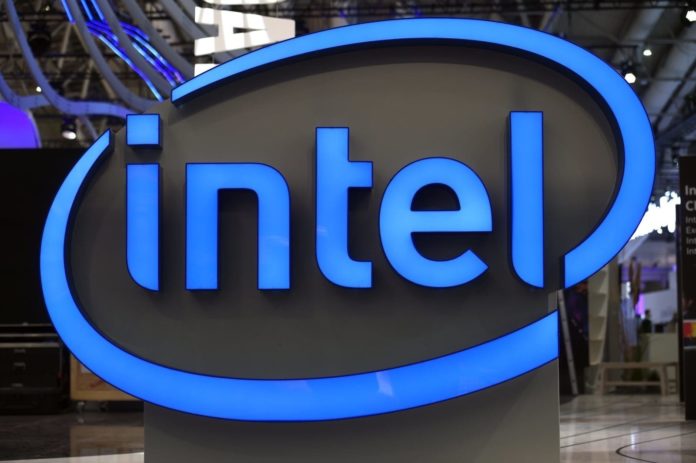
How often do you see a chipmaker’s product reviews leak out even before it is announced? Not often, but Intel’s 9th generation Coffee lake refresh seems to be an exception. After multiple specification leaks, an entire performance review for the Intel Core i9-9900K, i7-9700K and i5-9600K processors has been leaked.
The leak comes from Spanish media outlet El Chapuzas Informático as a supposed exclusive. Everything seems legit, but considering that the chips haven’t even been publicly announced, one can’t help but raise not one but two eyebrows.
Intel 9th Generation Specifications
Now the part that stands out is the clock speed. These 9th generation Intel CPUs are all unlocked and feature up to 5 Ghz single core boost clocks and 4.7 Ghz all core boosts. Intel has been stuck on the 14nm node for years now and something good has finally come out of this mature node for the company.

The core and thread count is quite straight-forward. The highest end i9-9900K has 8 cores and 16 threads, the i7-9700K has the same core count but half as many threads as it lacks hyper-threading while the i5-9600K has 6 cores and the same number of threads (again no HT).
The i9-9900K has a massive 16 MB L3 cache which gets reduced to 12 in the i7-9700K and finally the Core i5-9600K gets just 9 MB of L3 cache. As for the operating clocks, both the i7 chips get the same base clock of 3.6 Ghz, but the 9900K gets a slightly higher single core boost clock of 5 Ghz while the 9700K is limited to 4.9 (still quite high). Strangely the i5 gets a base clock of 3.7 Ghz but at 4.6 Ghz a lower boost clock than the i7 chips.
Intel Core i9-9900K, i7-9700K and i5-9600K Benchmarks
The top end Core i9-9900K packs 8 cores and 16 threads and posts some seriously impressive scores on Geekbench. The Intel Core i9-9900K scores 6248 points in single core and 33037 points in multi-core benchmarks. These scores are some of Intel’s best till now, and even the 16C/32T Threadripper chip can’t keep up with this.

The 1950X posts 30940 points in the multi-core Geekbench test, which might not be much slower than the 9900K, but then again this is a 10 core part while the Threadripper has 16. AMD’s Ryzen 2700X scores 25731 in the multi-core test which is almost 30% slower than the top-end Intel chip.
The other octa-core chip that is mentioned in the review is the i7-9700K. It is quite similar to the 9900K, except it lacks hyper-threading (which limits it’s thread count to 8) and the boost clock is a tad bit lower. Consequently, the single-core Geekbench score for the Core i7-9700K is 6297 points while the multi-core test tops out at 30152. Again, this is 20% higher than the fastest Ryzen chip.

However, in all the other multi-core CPU tests the 9700K gets beaten by the 8 Core Ryzen 2700X and is even slower than the previous gen i7-8700K in the wPrime bench. As expected, the Intel chip dominates in Firestrike and other gaming benchmarks, thanks to their superior IPC or single core performance.
These additional tests are available only for the 9700K, while the Geekbench scores have been leaked for all the chips. Says a lot about the leaks, given Intel’s strong showing in Geekbench.

The mid-range Intel Core i5-9600K scores 6027 points in single core and 23472 points in the multi-core benchmark. As a comparison, the previous gen i5-8600K scored 5000 points in single core and 19000-20000 in the multi-core Geekbench test. This boost can be attributed to higher core clocks, and although it may not be a major upgrade, considering it’s just an architectural refresh its a welcome boost nonetheless.
Conclusion
In the end, one thing can be concluded with certainty. Intel is resorting to more mundane strategies to stay on par with AMD in the CPU market. These new CPUs are identical to the previous 8th generation parts. Still, Intel has managed to squeeze out a good 10-15% extra performance out of the well-researched 14nm node.
These chips seem to beat AMD’s rival Ryzen CPUs quite comfortably in all single-core and even some multi-core tests. This is all thanks to Intel’s better IPC which in turn can be attributed to a mature design. The final piece of the puzzle is the pricing and given the back and forth leaks, the official announcement can’t be far.
Further reading:




Intel beating AMD has more to do with IPS rather than IPC, imo.
factor in the fuckload of vulnerabilities
Blha blha.. I know the performance of both Intel and AMD. Intel sucks, You don’t have to convince me.. ?